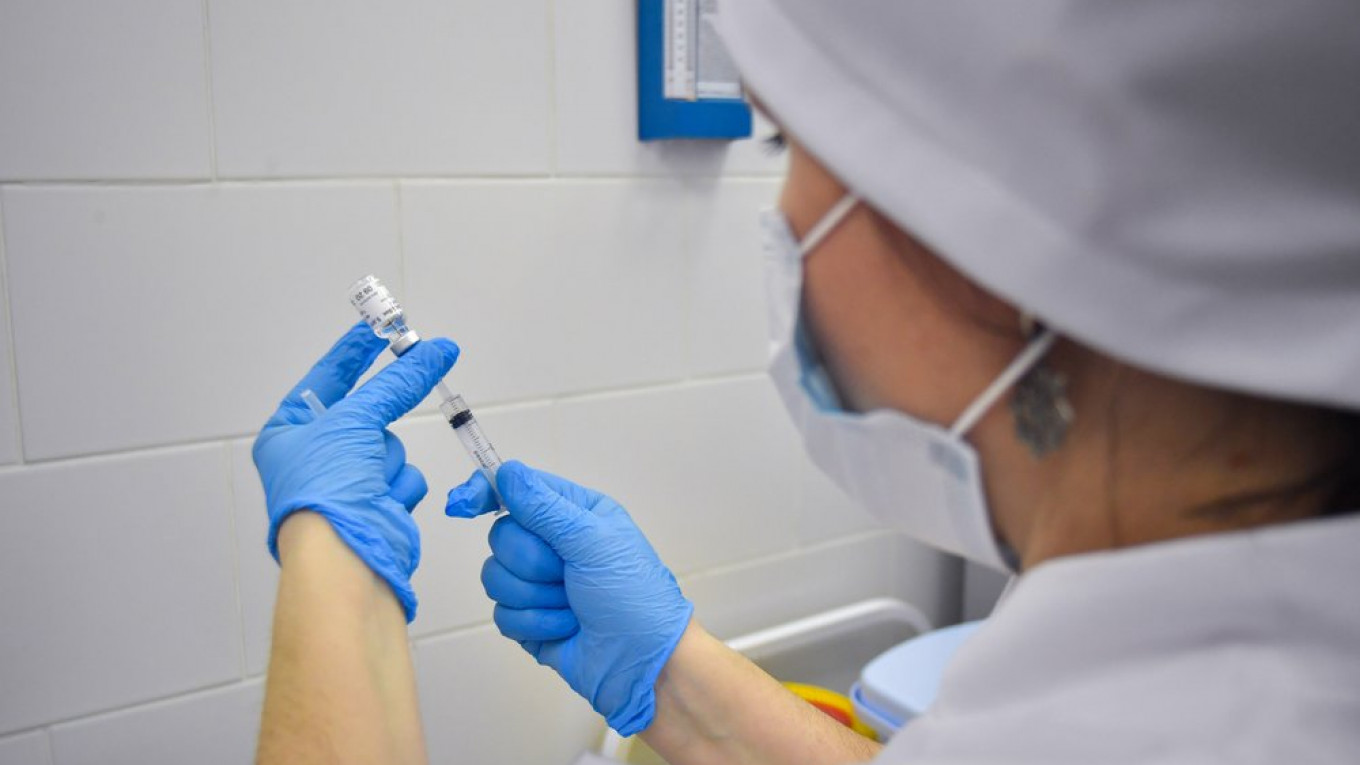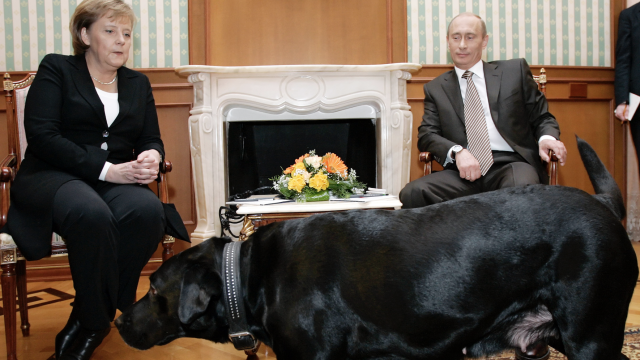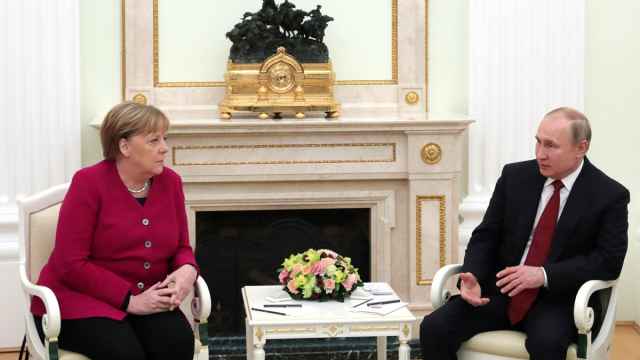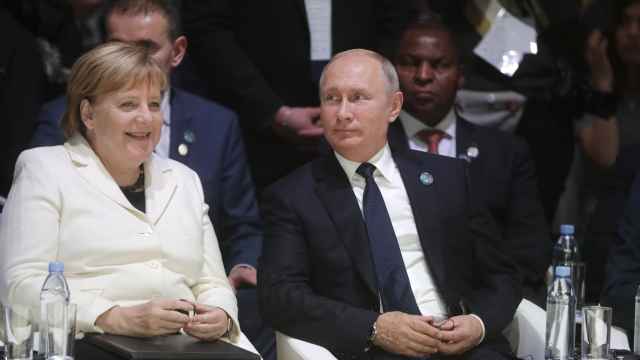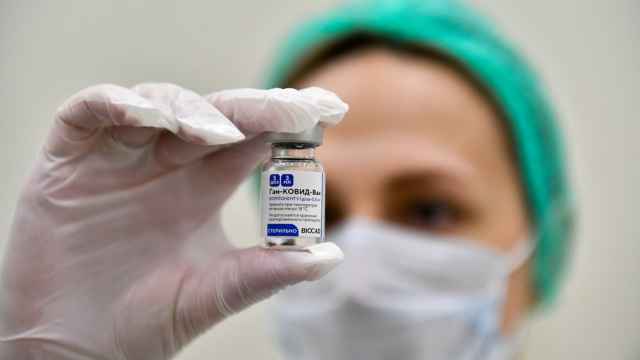Russian President Vladimir Putin and German Chancellor Angela Merkel discussed by phone the potential for joint production of a coronavirus vaccine, the Kremlin said Tuesday.
Putin and Merkel discussed cooperation in the fight against Covid-19 “with an emphasis on potential prospects for the joint production of vaccines,” according to a statement on the Kremlin’s website.
The talks follow Putin’s admission last year that domestic equipment shortages could delay Russia’s Sputnik V vaccine from entering mass production. Reports also said Russia was struggling with production capacity issues and problems with scalability and quality control.
Alexander Gintsburg, the director of the state-run Gamaleya research center that developed Sputnik, on Tuesday said that over 1 million people in Russia have received the jab so far.
More than 50 countries have bought or agreed to localize production of over 1 billion Sputnik V doses, with initial batches arriving in Argentina, Serbia and Belarus. Hungary, which received 6,000 doses that have not yet received regulatory clearance, has said it could abstain from using Sputnik V due to limited production capacity for the vaccine.
Last month, Russian and German health ministers agreed to discuss the search for “production facilities” for the joint manufacture of Russian-made Covid-19 vaccines. Russia’s state-run TASS news agency reported that Berlin told Moscow it was ready “to involve German companies in joint production of Russian vaccines.”
Putin and Merkel agreed to maintain health ministry-level contacts on the joint production of a Covid-19 vaccine, the Kremlin said in Tuesday’s statement.
Both Russia and Germany have recently started mass vaccination drives at home to curb the spread of the coronavirus and avoid re-imposing nationwide lockdowns. Germany is using the vaccine jointly developed by Pfizer and the Mainz-based company BioNtech.
In another sign of recognition for the Sputnik jab that has been viewed with skepticism by the West, British-Swedish drugmaker AstraZeneca in December announced a clinical trial program that would use a combination of its vaccine and the Russian one.
Some critics have described it as a tool to bolster Russia's geopolitical influence.
AFP contributed reporting.
A Message from The Moscow Times:
Dear readers,
We are facing unprecedented challenges. Russia's Prosecutor General's Office has designated The Moscow Times as an "undesirable" organization, criminalizing our work and putting our staff at risk of prosecution. This follows our earlier unjust labeling as a "foreign agent."
These actions are direct attempts to silence independent journalism in Russia. The authorities claim our work "discredits the decisions of the Russian leadership." We see things differently: we strive to provide accurate, unbiased reporting on Russia.
We, the journalists of The Moscow Times, refuse to be silenced. But to continue our work, we need your help.
Your support, no matter how small, makes a world of difference. If you can, please support us monthly starting from just $2. It's quick to set up, and every contribution makes a significant impact.
By supporting The Moscow Times, you're defending open, independent journalism in the face of repression. Thank you for standing with us.
Remind me later.


